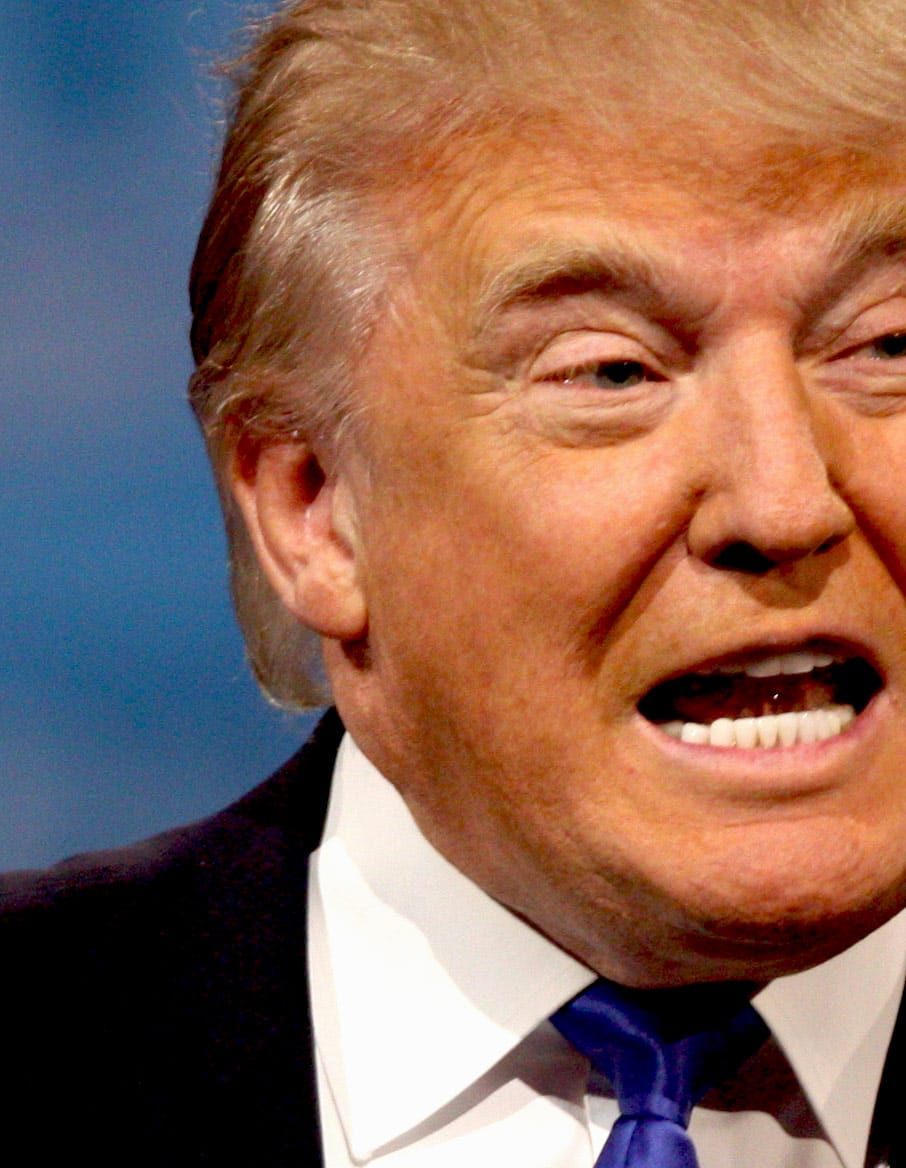- About
- Topics
- Picks
- Audio
- Story
- In-Depth
- Opinion
- News
- Donate
- Signup for our newsletterOur Editors' Best Picks.Send
Read, Debate: Engage.
| February 20, 2017 | |
|---|---|
| topic: | Good Governance |
| tags: | #China, #Donald Trump |
| located: | China |
| by: | Nicole Webb |
It was around about the time when English teachers in China started encouraging young people to study American pop culture that The Apprentice became well known.
The cool and confident businessman who could control everything made headlines. No one in China knew what his political beliefs were - and people didn't learn too much during his controversial presidential campaign; China's censors had issued advance orders to media outlets to restrict coverage of the U.S. democratic contest, so little was seen of the day to day campaign mechanics.
A South China Morning Post poll published in November however, suggested that Trump was viewed somewhat more favourably in China than anywhere else in Asia.
Ask anyone on the street what they think of Trump and invariably, they laugh and say “rich!”. And in a nation where making money is currently ‘everything’, a rich president is to be admired.
To the Chinese people, he’s a successful “Fu Er Dai” which roughly translated, means “second generation of rich Chinese”, or less literally, someone who has inherited their wealth from their affluent parents. As you can probably tell, “Fu Er Dai” is not always a positive term in a country still very much steeped in poverty in China. There are often claims they spend extravagantly and show-off far too much. The important thing here, however, is that he's seen as successful.
Popular or not, it hasn’t stopped locals from poking fun at the new American president. He's a ‘Chuan Pu’ (川普) an abbreviation for putonghua (Chinese) spoken in the Sichuan province. Literally, it means Mandarin with a Sichuan accent. It is a way of mocking someone who doesn’t speak standard Mandarin or someone who speaks with a heavy accent.
President Trump’s daughter, Ivanka has also managed to impress China with her recent visit to the Chinese Embassy in Washington for Chinese New Year. There, her daughter (Trump’s granddaughter), Arabella received glowing reviews when she recited poetry in Mandarin. The video of the four-year-old went viral, making her (and possibly Trump) an instant hit with thousands of likes on Weibo, China’s version of Twitter.
Reports have often suggested China preferred Donald Trump to Hillary Clinton, who is known for her tough stance against the country. She has publicly condemned its record on human rights, political system and system of censorship.
She’s also accused the country of hacking US governmental computers, stealing commercial secrets and information and most importantly, she’s expressed a desire for more US intervention in the disputed South China Sea.
Trump’s win has also sent a message to China’s people: Western democracy isn’t fool-proof! A nice bonus in for Chinese leaders who fervently continue pushing China’s One-Party line to the people.
Popularity aside, China’s leaders currently have a much more serious take on the new leader, and the future relationship between the two superpowers hangs in the balance.
Trump has already made waves, particularly with his use of Taiwan as a pawn in his game of political chess, suggesting he might tear up the One China policy - which sees Taiwan as part of China - a diplomatic stance that has kept the peace since the seventies, and a policy that China will protect at any cost.
There have also been fears that the lauded collaboration between President Obama and President Xi on climate change may be at risk under a Trump administration. However, China’s Chief Climate negotiator Xie Zhenhua told the state-owned China Daily, “the international community and US citizens will pressure the Trump administration to continue clean energy policies.”
President Trump has also repeatedly accused China of maintaining an artificially weak currency, threatening higher tariffs on Chinese imports unless the country enters into negotiations to help lower its trade surplus with the U.S.
In the first speech by a Chinese president at the annual Davos World Economic Forum, President Xi Jinping stressed China would keep its borders open. “Pursuing protectionism is like locking oneself in a dark room. While wind and rain may be kept outside, that dark room will also block light and air. No one will emerge as a winner in a trade war,” he said.
President Xi also met with US Vice-President Joe Biden on the summit sidelines and reiterated: the world needs China and the United States to have a stable and cooperative relationship.
China’s foreign minister Wang Yi claimed that then President-elect Trump "agreed 100 percent" with Chinese leader Xi Jinping, and that their future relationship was positive. However the two leaders have conspicuously not spoken since Mr Trump's inauguration.
In the next few months, Mr Xi must focus on selecting new members for the ruling Standing Committee during his second five-year term: economic stability is crucial.
Just like any good, lasting relationship, communication is key.
By copying the embed code below, you agree to adhere to our republishing guidelines.
